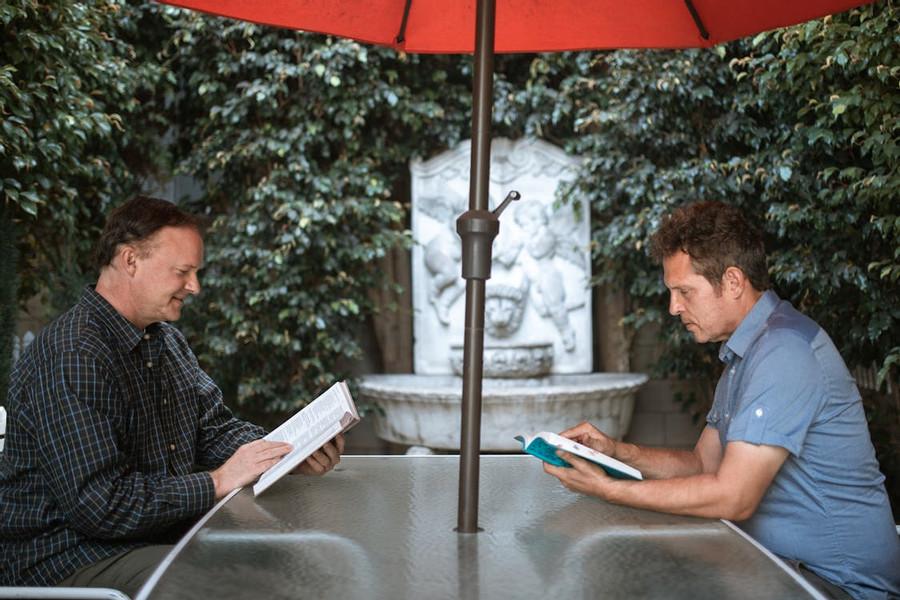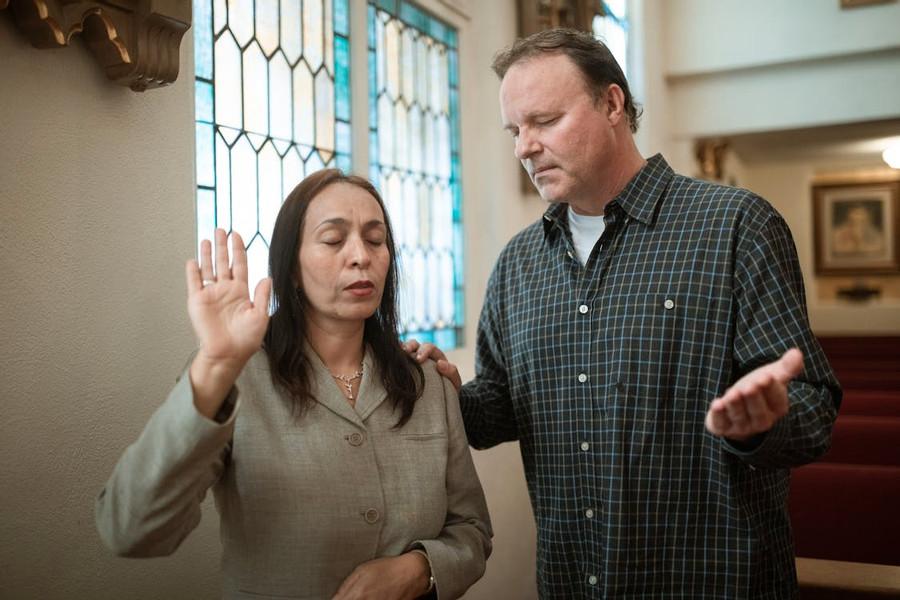How to forgive someone who isn’t sorry
Curated from: vox.com
Ideas, facts & insights covering these topics:
13 ideas
·1.68K reads
11
Explore the World's Best Ideas
Join today and uncover 100+ curated journeys from 50+ topics. Unlock access to our mobile app with extensive features.
Forgiveness
Forgiveness is often viewed as the “happily ever after” ending in a story of wrongdoing or injustice. Someone enacts harm, the typical arc goes, but eventually sees the error of their ways and offers a heartfelt apology. “Can you ever forgive me?” Then you, the hurt person, are faced with a choice: Show them mercy — granting yourself peace in the process — or hold a grudge forever. The choice is yours.
It’s reasonable to expect an apology when you’re the one who has been hurt or betrayed. But that’s not how it works in practice.
19
205 reads
Forgiving Someone Who Isn't Sorry
- How do you forgive someone who isn’t all that sorry, or who you can’t actually engage with?
- Forgiveness exists separately from reconciliation, and also from accountability — which is why forgiving someone doesn’t require an apology or even their participation.
- Reconciliation is a negotiation strategy between two or more people trying to make their way back together to mutual trust.
20
221 reads
Expand Your View of What Forgiveness Is
Forgiveness might be a step on the path to reconciliation, but you don’t have to traverse the full route if you’d prefer not to.
While forgiveness is separate from accountability, it’s not at odds with seeking justice. Many people think it’s either/or, rather than both. Forgiving someone can help you take a more clear-eyed approach to justice because you’re no longer seething with rage.
20
186 reads
Think of Forgiveness as Something You’re Doing Primarily for Yourself
- Forgiveness does not require you to pretend the hurt didn't happen.
- Forgiveness doesn't have to exist anywhere outside of you.
- You are the one who was wronged, so why do you have to now give them something?
- Once you remove reconciliation as a goal, it's easier to see how forgiveness will benefit you as much as - if not more than - the other person.
20
153 reads
Don’t Let Fear of “losing” Stand in The Way of Forgiving Someone
Being willing to let go of the anger and hurt can be one of the hardest aspects of forgiving someone, especially someone who isn’t sorry or who hasn’t apologized. In these instances, it can sometimes feel like your wound is all you have: It serves as proof that an awful thing happened to you and really was as terrible as it felt.
Forgiving someone, then, can feel like you’re capitulating — like you’re acquiescing to their view of events when you know in your heart they did something wrong.
20
131 reads
Witness The Anger
- Hang on to anger for a short time because it shows you're a person of worth and dignity, and no one should treat you this way
- Over time, it brings us down with fatigue, rumination, and becoming far more pessimistic in life.
22
135 reads
The Uncovering Phase
The person who has been treated unfairly focuses on the effects of the injustice in their life. These effects might be things like monetary costs, lost time, ongoing anxiety, depression, anger, sleep problems, or a more pessimistic worldview. In a lot of instances, people don’t even realize how much the injustice is still impacting their life.
In this stage, you’re also asked to think about what solutions you’ve already tried for these problems and the extent to which they’ve led to meaningful improvements or change.
21
113 reads
There’s Real Work Involved in Forgiving, and It Takes Time
Researchers have led to the development of a step-by-step process for forgiveness, which can happen in therapy (ideally with someone who is trained in forgiveness therapy), or through a self-guided process using a workbook.
There are four major phases of forgiveness: uncovering, decision, work, discovery, and forgiveness.
20
113 reads
The Decision Phase
This is where you’ll determine whether you want to try to forgive the person who hurt you. And the answer might be no! Maybe it’s too soon and the pain is too fresh, or you just know you’re not ready to let go of the anger. That’s okay; this is a process you can always return to, and, eventually, you might find that you want to forgive.
20
91 reads
The Work Phase
At this point, you’ll aim to broaden your narrative about the other person and develop empathy for them. So you might think about how they were raised, what difficult things happened in their life that led them to this point, and the ways in which that person is vulnerable.
You start telling that story to yourself, over and over, we see a little bit of empathy, a little tiny bit of compassion, a little bit of softening of the heart. That takes time, and definitely can’t be engineered through therapy; it has to emerge.
20
84 reads
Work Phase: Standing In The Pain
- One way to do this is to think of your pain on a scale of 1–10, and to visualize that amount of pain in a heavy sack that you are holding on your back.
- Acknowledge that it’s there, be aware of it, and stay with it.
- Don’t try to run away from it. Don’t try to take anything out of it. Just let it be. What we find is, that when people do that, that sack tends to shrink.
- This part of the process can also help you rebuild self-esteem because it’s a reminder of what you’re capable of.
22
77 reads
The Discovery Phase
This is when you’ll reflect on the meaning you’ve found in your life from this experience. What we tend to find a lot of times is people become much more attuned to the wounds within other people. You may realize that you’ve become more patient with strangers, or less judgmental of coworkers or friends because you have a newfound understanding of how they might also be struggling.
Going through this might also have made you feel more connected to other people, as you realize you’re not alone in the injustice you suffered.
20
76 reads
The Act Of Forgiveness
Being ready to forgive someone who hurt you takes time, as does the work of forgiving them. It’s impossible to know when — or if — you’ll ever be ready. If now doesn’t seem to be the time, that’s okay.
We’re in relationships with many people over the course of a whole lifetime. Things can shift in surprising and sometimes dramatic ways just with the passage of time.
20
97 reads
IDEAS CURATED BY
CURATOR'S NOTE
The power of forgiveness
“
Christine Smith's ideas are part of this journey:
Learn more about communication with this collection
How to avoid email overload
How to organize your inbox
How to write effective emails
Related collections
Similar ideas
Read & Learn
20x Faster
without
deepstash
with
deepstash
with
deepstash
Personalized microlearning
—
100+ Learning Journeys
—
Access to 200,000+ ideas
—
Access to the mobile app
—
Unlimited idea saving
—
—
Unlimited history
—
—
Unlimited listening to ideas
—
—
Downloading & offline access
—
—
Supercharge your mind with one idea per day
Enter your email and spend 1 minute every day to learn something new.
I agree to receive email updates












